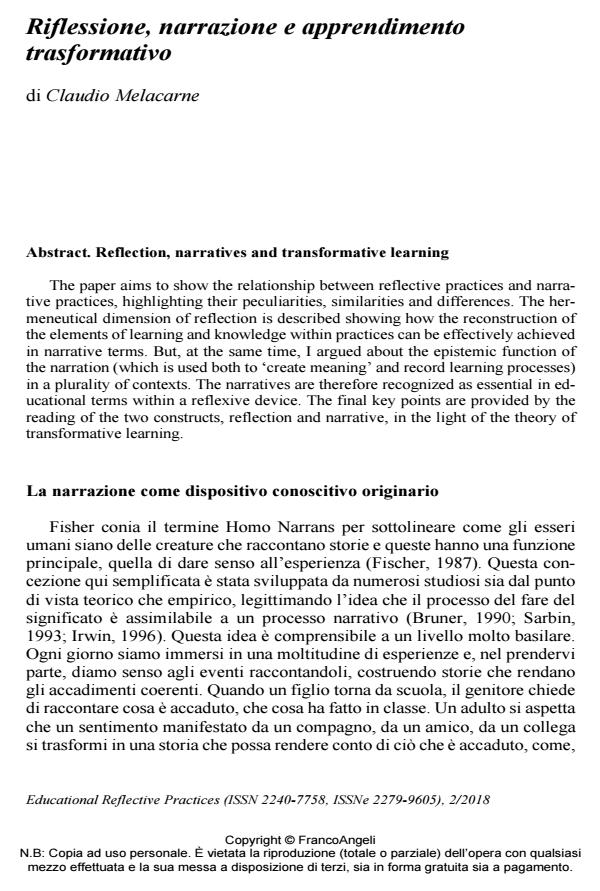Riflessione, narrazione e apprendimento trasformativo
Titolo Rivista EDUCATIONAL REFLECTIVE PRACTICES
Autori/Curatori Claudio Melacarne
Anno di pubblicazione 2019 Fascicolo 2018/2
Lingua Italiano Numero pagine 13 P. 201-213 Dimensione file 164 KB
DOI 10.3280/ERP2018-002013
Il DOI è il codice a barre della proprietà intellettuale: per saperne di più
clicca qui
Qui sotto puoi vedere in anteprima la prima pagina di questo articolo.
Se questo articolo ti interessa, lo puoi acquistare (e scaricare in formato pdf) seguendo le facili indicazioni per acquistare il download credit. Acquista Download Credits per scaricare questo Articolo in formato PDF

FrancoAngeli è membro della Publishers International Linking Association, Inc (PILA)associazione indipendente e non profit per facilitare (attraverso i servizi tecnologici implementati da CrossRef.org) l’accesso degli studiosi ai contenuti digitali nelle pubblicazioni professionali e scientifiche
The paper aims to show the relationship between reflective practices and narra-tive practices, highlighting their peculiarities, similarities and differences. The hermeneutical dimension of reflection is described showing how the reconstruction of the elements of learning and knowledge within practices can be effectively achieved in narrative terms. But, at the same time, I argued about the epistemic function of the narration (which is used both to ‘create meaning’ and record learn-ing processes) in a plurality of contexts. The narratives are therefore recognized as essential in educational terms within a reflexive device. The final key points are provided by the reading of the two constructs, reflection and narrative, in the light of the theory of transformative learning.
Claudio Melacarne, Riflessione, narrazione e apprendimento trasformativo in "EDUCATIONAL REFLECTIVE PRACTICES" 2/2018, pp 201-213, DOI: 10.3280/ERP2018-002013